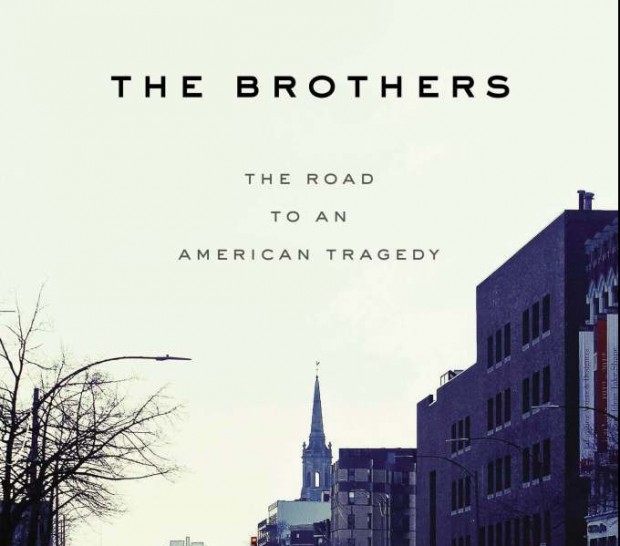
Guest contributor: Bill Lundgren
Lundgren’s Lounge: “The Brothers: The Road To An American Tragedy,” by Masha Gessen
categories: Cocktail Hour / Don't Talk About Politics / Guest Columns / Reading Under the Influence
Comments Off on Lundgren’s Lounge: “The Brothers: The Road To An American Tragedy,” by Masha Gessen

The universal response to the Boston Marathon bombings was revulsion, horror and incomprehension. The media’s talking heads incessantly characterized the Tsarnev brothers as Islamic terrorists/jihadists. In her account of the circumstances leading up to and the emotional aftermath of the bombing, journalist Masha Gessen offers up a more thoughtful and nuanced perspective on the causes of the tragedy and its broader implications in, The Brothers: The Road To An American Tragedy.

Masha Gessen
Gessen spends very little time discussing the actual bombing; she refuses to serve as judge, jury and executioner. Rather, she offers a narrative of the modern American immigration saga in an increasingly paranoid, post 9-11 world. Today’s newly arrived immigrants, like the Tsarnaev family, quickly discover that the streets are not paved with gold and any notion of a meritocracy is laughable, particularly when one is from a part of the world perceived to be a breeding ground for terrorism. There is a sense of inevitability as Gessen recounts the slow dissolution of the American Dream for the brothers and the role that this disillusionment plays in the bombing. She absolutely does not exonerate the brothers; but she does suggest that a more critical examination of the role that Homeland Security and U.S. immigration policy and the FBI have played in Islamic ‘terrorist‘ attacks launched on U.S. soil since 9-11, might be enlightening.
Despite FBI denials, Gessen provides compelling evidence of a relationship between the bureau and the elder Tsarnaev brother long before the bombing occurred. And while the FBI denies knowledge of the brothers’ role in the bombing until after the shootout when Tamerlan died, Gessen characterizes this as “… an explanation of incompetence that strains the imagination”, pointing to tips to the FBI hotline, including one from the brothers’ lawyer-aunt who explicitly identifies her nephews from the pictures released to the media. Additionally, Gessen (and local law enforcement) wondered why FBI personnel swarmed the area around the Tsarnaev apartment after the bombing, well before the FBI had identified any suspects. Gessen writes: “Another explanation makes infinitely more sense: The FBI was setting up an operation without notifying its local partners because it needed to ensure that no other law enforcement got to Tamerlan Tsarnaev before the FBI had captured–or killed–him. In other words, the explanation that best fits the facts is a cover-up.”
So what was the nature of the relationship between Tamerlan and the FBI? In the aftermath of Tamerlan’s death, that is a question that will remain, perhaps, forever unanswered. Gessen points to the FBI’s role in ‘catching’ (entrapping?) alleged Islamic terrorist conspirators. The question becomes, would these alleged plots even have come close to fruition without the FBI’s involvement? Gessen quotes a former FBI agent who says, “When the FBI undercover agent or informant is the only purported link to a real terrorist group, supplies the motive, designs the plot and provides all the weapons, one has to question whether they are combatting terrorism or creating it…”
In the aftermath of 9-11 we have witnessed the construction of a trillion dollar security industry and the creation of a U.S. Cabinet department that are both dependent upon the specter of a boogieman and the resultant collective societal paranoia. Yet as Gessen points out in her conclusion to this fascinating and convincing work of journalism, “The rhetoric and actions of the U.S. government and its agents, in their outsize response and their targeting of specific communities, have probably done as much to create an imagined community of jihadists as have the efforts of Al-Qaida and its allies.”
While our paranoia may or may not be justified, the question must be raised, who or what should we really be afraid of?

[Bill Lundgren is a writer and blogger, also a friend of Longfellow Books in Portland, Maine (“A Fiercely Independent Community Bookstore”), where you can buy this book and about a million others, from booksellers who care. Bill keeps a bird named Ruby, a blind pug named Pearl, and a couple of fine bird dogs, and teaches at Southern Maine Community College. ]
